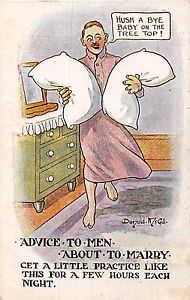
Derb’s May Diary: The Geezer Election; You Brexit, You Own It; Etcetera
06/01/2016
The geezer election. This month’s main event was the American Renaissance conference, May 20th-22nd. I recorded some observations in the May 27th Radio Derb.Foremost among those observations was the number of young people at the conference. That in turn got me thinking about youth and age as factors in politics.
My thinking didn’t arrive at any original conclusions. It would have been astounding if it had done. This topic has been worked over by commentators for centuries — very likely for millennia, in fact, with twentysomething hunter-gatherers back in the Environment of Evolutionary Adaptedness scoffing at the cautious conservatism of their tribal elders, while those latter grumbled about young fools puffed up with confidence when they'd only just learned to sharpen a spear or cure a hide.
What I mainly thought was, that the three presidential candidates we're all talking about are rather old. On election day this November Donald Trump will be 70, Hillary Clinton 69, Bernie Sanders 75. Those numbers are striking to me for a couple of reasons.
First reason: I had long since resigned myself to the fact that I've reached the point where politicians are way younger than I am. Well, Trump and Clinton actually are younger than I am, but only by one and two years, respectively. They're my g-g-generation; but I've got 16 years on Barack Obama, 21 on David Cameron, and — good grief! — 25 on Ted Cruz.
Second reason: It’s strange to me to see people eligible for Social Security striving so hard for the brass ring, or indeed for anything. That’s just personal, a matter of temperament and background.

In 1941 George Orwell wrote an essay about the "saucy" comic postcards that were popular in mid-20th-century Britain. The moral atmosphere of the jokes on those cards, said Orwell:
reflects, on a comic level, the working-class outlook which takes it as a matter of course that youth and adventure — almost, indeed, individual life — end with marriage.
That’s the outlook I grew up with. In your twenties and thirties some interesting or exciting things might happen to you: soldiering in a war, desperate love affairs, brushes with fame. Then you get married and start a family. From there on life is a gentle, eventless downward glide to the grave.
I know of course that other outlooks are possible. That’s just the one I grew up with and have never shaken off.
So I find myself at a psychological distance from the Donalds and Hillarys. No offense to them — nor, of course, to the shades of Ronald Reagan, Winston Churchill, and Konrad Adenauer, who quit politics at ages 78, 80, and 87 respectively — but I just can’t relate. Why, murmurs the ancestral voice in my head, why don’t these old farts get themselves some carpet slippers and a discount bus pass, like normal (according to me) geezers?
Own the insult! Just one more observation from AmRen 2016. I think I've been a little slow on the uptake here, but that weekend in Tennessee was the first time I noticed the Alt-Right haircut.

You've probably noticed it yourself already: a buzz cut up the sides and back of the head, with a longer growth on top. All the young Alt-Right men seem to have it. Richard Spencer’s representative. In fact prior to the AmRen conference I thought the style was just his. No; it’s an Alt-Right identity marker.

I asked Richard whether he had originated the look; or if he hadn’t, whether he knew who had. Richard said he'd seen it on hipster types before he adopted it himself, but didn’t know how far back it went. I wondered if it had been inspired by Kim Jong Un. Richard said he thought not.
Richard referred to the style by a word I heard as "fasci." I assumed this was an impertinent Alt-Right way of "owning the insult." However, a writer at the lefty website BuzzFeed wrote the word as "fashy" in her own report on the conference. Writing for a CultMarx outfit like that, she must be way more hip than I am, so I assume that "fashy" is the correct spelling.
That’s a pity. The best way to deflate a silly insult is to own it.
Careful! — The fountain of youth is slippery. That Orwell essay goes on to say that:
In this, as usual, they [i.e. the working class] are more traditional, more in accord with the Christian past than the well-to-do women who try to stay young at forty by means of physical-jerks, cosmetics and avoidance of child-bearing.The day after I'd looked up that essay — so while I still had it in mind — I went to a Memorial Day barbecue with some friends. Two ladies of a certain age — considerably more than forty — were chatting over the ribs and corn.
The first lady expressed enthusiasm for Zumba classes, but: "I had to quit. I did something to my knee. I’m having it looked at …"
The second lady commiserated: "I was doing Pilates, but I had to give it up. I put my back out. The doctor says it’s a pinched nerve …"

Moral of the story: When emulating the rich and famous in matters of exercise, please remember that Cher has a $5,000-a-month personal trainer on call with a Ph.D. in Anatomy and Physiology. What you have is an enthusiastic amateur sports coach renting the local gym for an hour a week. Your mileage may vary.
The long twilight. If you believe the optimists, the concepts of youth and age may be heading for a major overhaul.
I met one of them last year, when I was whining about having turned seventy to anyone who'd listen. The optimist in this story was a medical acquaintance, an actual M.D.
He: "Don’t worry, Derb. We have a good handle on most of the things that can happen to you in your seventies, so there’s an excellent chance you'll get to eighty. And we're making such fast progress that by that time, we'll have a handle on most of the things that can get you in your eighties; so chances are, you'll make it to ninety. By which time …"
Me: "I get the idea. You're saying I'll live for ever."
He: "Well … negative probabilities compound, of course … But 120, 150, sure. Who knows?"
That’s great, except there’s no way I can afford a 70-year retirement. Around 2060 I'll have to go back to work. Will there still be a market for COBOL programmers in 2060? I sure hope so.
Out of Africa. Someone referred me to Walter Williams 2009 glass-half-full piece about black Americans. It’s not bad, but the following sleight of hand spoils it.
Are black Americans a minority group? When one uses the term minority, there is an inference that somewhere out there is a majority but in the United States we are a nation of minorities. According to the U.S. Census Bureau 2000 census, where people self-identify, the ancestry of our largest ethnic groups are people of German ancestry (15.2 percent), followed by Irish (10.8 percent), African (8.8), and English (8.7) ancestry. [Race Talk,TownHall.com, May 13, 2009]

Sorry, Walter, that’s just cheating. Germany, Ireland and England are nations; Africa’s a continent.
We Americans have trouble talking about Africa in a racial context because self-identified African Americans come almost entirely from just one of sub-Saharan Africa’s 4½ races: the one called "Negroes" in The Penguin Atlas of African History.
In prehistory the Negroes lived only in the forest and bush country of West Africa. The Congo basin 
was home to the Pygmies. (I’m sure there’s some PC name we're supposed to use in place of "Pygmies," but … can’t be bothered.) South and east Africa was all Bushmen. In the upper Nile were Nilo-Saharans: black, but taller and skinnier than Negroes. That’s four races; the remaining half-race was formed when Semites from the Arabian peninsula invaded and mingled with the Cushites of what is now Eritrea and Ethiopia around 500 B.C.
Later, in the first few centuries of the Christian era, the Negroes surged east and south, occupying most of the lands of the Pygmies and Bushmen. Those other races are still present in quantity, though, as are the Nilo-Saharans and Cushite-Semites. (Amharic, the national language of Ethiopia, belongs to the Semitic family.)
Do Pygmy Americans, Bushmen Americans, Nilo-Saharan Americans and Cushite-Semite Americans — there must surely be some — designate themselves separately and resent the Negroes monopolizing the descriptor "African"? I’m curious to know.
Great Courses cops out on race. This month’s Great Courses lecture series, to listen to while I walk the dog, was Steven Gimbel’s Redefining Reality: The Intellectual Implications of Modern Science.

As a quick canter through the sciences, it’s not bad, but I was hoping for something a bit deeper, more metaphysical. I can’t say I learned much.
And Lecture 24, "Race and Reality," is an embarrassment.
Some of the dividing lines we place between people are based on differences that are real, where others are merely socially constructed.Uh-oh.
Is race a part of reality, or simply a social construct?Tell us, Prof.
In 1972 the American geneticist Richard Lewontin published a paper in the prestigious journalEvolutionary Biology called "The Apportionment of Human Diversity" … What he found was shocking to those who held the accepted belief in the biological basis of racial division. There is significant genetic variability among people; but the greatest degree of difference occurred within groups, not across them.Right; and that is known nowadays as "Lewontin’s Fallacy." Even Leftipedia acknowledges that: they have a web page under that title.
You don’t get to hear about that from Prof. Gimbel. On his account the whole matter was dispositively settled — closed, sealed, and gift-wrapped — in 1972 by Lewontin, a self-confessed Marxist propagandist. There has been no critique, no further enquiry, no improvement in our understanding, in the last 44 years.
You pretty much know where Prof. Gimbel will go from there. Yep: The Bell Curve.
Blacks and Latinos, Herrnstein and Murray argued, are in general hopelessly behind white Americans and Asians because of their genetics. Pouring money into better schools, better teachers, smaller classes, school lunches, Head Start, and after-school activities would never correct the disparity. As such we should forget about helping the poor. It won’t really help them, it'll only needlessly bankrupt the rich.But, argues Prof. Gimbel, since Richard Lewontin dispositively proved the non-reality of race — back in 1972, remember? — this is all baloney. So, let the money pour!
Heather Mac Donald heaped praise on The Great Courses five years ago in City Journal, contrasting their offerings favorably with the politicized race'n'gender flapdoodle of our universities:
Overwhelmingly, the professors act as handmaidens to their subjects, laying out their material clearly and objectively, rather than avenging 4,000 years of injustice by unmasking the power relations supposedly hidden in a hapless text. Whitman College classics professor Elizabeth Vandiver notes in a course on Homer’s Iliad that ancient Greek culture was patriarchal, unlike the modern era. Seth Lerer, a literature professor at the University of California at San Diego, does not chastise Milton for sexism in the famous description of Adam and Eve in Paradise Lost:Well, as Prof. Vandiver could no doubt tell you, Homer nods, and so does The Great Courses company. I have a great pile of their courses (I lent Heather a boxful of them for reference when she was writing that article) and I shall be buying more; but not any of Steven Gimbel’s.For contemplation he and valour form'd,
For softness she and sweet attractive grace,
He for God only, she for God in him.
If the Great Courses were a college, its students would graduate with a panoramic view of human accomplishment and the natural world.
You Brexit, you own it. The boss here asked me to write something about Brexit — the upcoming referendum vote on British exit from the European Union. I can’t think of anything to write, though. A drowsy numbness pains my sense when I contemplate the EU.
Understand, please, that this has been an issue for my entire adult life, and then some. Tory Prime Minister Harold Macmillan tried to get Britain into what was then the European Economic Community (EEC), colloquially "the Common Market," when I was still in high school. He failed. So did Labour Prime Minister Harold Wilson four years later.
By that time my Dad was writing Letters to the Editor of the local newspaper warning against entry into what he saw as a Franco-German plot against the rights and independence of honest Englishmen. He went on writing those letters for years. It became a minor obsession with him.
I looked on, smiling indulgently. Come on, Dad. Where was the harm in an economic union with Europe? It was just a free trade area.
Dad was right, of course. When you give supranational bureaucrats an inch, they'll take a meter. (Yes, Britain is now stuck with the damn metric system.) Free trade was just a pretext. The elites wanted political union, and the extinguishing of national sovereignties.
They got those things. For Britain to untangle herself from them now will be economically disruptive. I hope they'll do it, though: to vindicate my Dad, and avert the fate described in that old song:
But now we are dwindled to … what shall I name?
A sneaking poor race, half-begotten and tame,
Who sully the honours that once shone in fame.
The three-book problem. Fiction report: I finished the Transylvania Trilogy and shall be writing about it at length elsewhere.

Back in February I got an email from a reader:
Just finished The Three Body Problem by Cixin Liu — obscure references to Chinese history, interstellar ethnomasochism, Cultural Revolution, famous math problem. Immediately looked for your review and couldn’t find one. Trust you will gratify science fiction fans everywhere and give an opinion.As an old sci-fi buff, how could I resist? I bought a copy. This month I finally got round to reading it.
I’m sorry to record a "Meh." You can read the Amazon reviews for yourself. This one came closest to my own judgment. The reviewer only omits to note that Liu has a tendency to tree-huggy preachiness. If you want to send a message, pal, use Western Union.
Don’t let me put you off, though. For one thing, as I've written, I encountered sci-fi in its Golden Age sixty years ago. I’m a sci-fi snob, I know it.
For another, I’m not sure that sci-fi works any more. It was too much of its time — that time of Heroic Modernity; of intellectual revolutions in physics, astronomy, biology, and math; of engineers with slide rules transforming travel, comfort, and war; that time before the flickering screens were everywhere, consuming our attention and draining our imaginations.
Possibly, though, I’m just imposing my own reduced imaginative resources on a book you might like. Give it a try. If you do like it, the story continues through two more books. Yes, this is another trilogy.
Math Corner. Here’s a wee story from the intersection of math and freelance writing.

John Urschel (right) is a black professional football player, an offensive lineman for the Baltimore Ravens. He’s also a research mathematician, currently in a Ph.D. program at MIT.
That’s an unusual combination of things for a person to be. I wasn’t too surprised to learn that a publisher has signed up to bring out an autobiography of Urschel.
I learned this from an acquaintance with contacts in the book-publishing business. She told me that the book is to be ghostwritten, as is perfectly normal with subjects who are (a) not professional writers and (b) as busy as Urschel. The publisher has engaged a ghostwriting agency (yes, there really are such things) and they were looking for a writer who could cope with the math aspect of Urschel’s life.
Why didn’t I try for it? my friend asked me. Ghostwriting pays quite well. She named a contact at the agency.
I emailed the guy, offering my services. He emailed back, asking for a résumé and wanting to know if I had any ghostwriting experience. I emailed back a résumé and a confession that I have never ghostwritten. How hard can it be?
I never heard back, not sure why. Lack of experience? That must be it.
[I note in passing that one of Urschel’s first research papers, written when he was an undergraduate, had the title: "Instabilities in the Sun-Jupiter-asteroid three-body problem." Funny how things come together.]
John Derbyshire writes an incredible amount on all sorts of subjects for all kinds of outlets. (This no longer includes National Review, whose editors had some kind of tantrum and fired him. ) He is the author of We Are Doomed: Reclaiming Conservative Pessimism and several other books. He’s had two books published by VDARE.com: FROM THE DISSIDENT RIGHT (also available in Kindle) and From the Dissident Right II: Essays 2013. His writings are archived at JohnDerbyshire.com.
Readers who wish to donate (tax deductible) funds specifically earmarked for John Derbyshire’s writings at VDARE.com can do so here.

